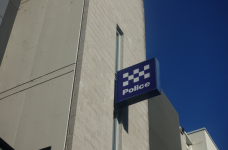Police Want Corruption Hearings to be Private

As discussed in a previous blog, the vast majority of court hearings in Australia are open to the public – which is important to promote transparency in the justice system.
But two Victorian police officers who are facing multiple allegations of using excessive force against women want their corruption hearings to be hidden from the public.
Funded by the Police Association (ie the taxpayer), the officers are taking their case all the way to the nation’s highest court, arguing they should not be required to give evidence at a public hearing.
The officers, who cannot be named for legal reasons, are believed to have worked at Ballarat police station.
The High Court is now tasked with determining whether the Independent Broad-Based Anti Corruption Commission (IBAC) has power to compel public hearings.
Background to the Case
The officers are alleged to have assaulted vulnerable women in a series of separate incidents from 2009 to 2015.
The most concerning allegation – which we previously reported on – is that in January 2015, the officers kicked and stomped on a 51-year-old mentally unwell woman while she was handcuffed. CCTV footage allegedly depicts the officers forcibly strip-searching the woman, before kicking her left hip, standing on the back of her legs and stomping on her right calf.
The woman was held in custody for 16 hours – four times the usual holding period of 4 hours – was not given a blanket for over seven hours, was not offered a change of clothes, and was told by police to drink from her cell toilet.
The woman had been arrested for being drunk in a public place.
In a separate incident in 2010, a woman went to Ballarat police station to lodge a complaint about the way police had treated her son. She was allegedly told to leave and arrested when she refused.
And in 2009, a another concerned mother who attended the station to enquire about her arrested son was allegedly placed in a chokehold and pushed out of the station.
The allegations were referred for investigation by IBAC, the Victorian agency tasked with ‘preventing and exposing public sector corruption and police misconduct.’
It is customary for IBAC to hold public hearings in order to promote transparency and accountability. But the officers sought an order from the Supreme Court last year to have their hearing conducted in secret, as a public hearing would ‘completely trash’ their reputations.
The Victorian Supreme Court refused their request and ordered the officers to give evidence at a public hearing, finding that this was in the public interest.
But their hearing has been put on hold until the High Court decides whether it should be heard publicly.
The Court is due to hear the case on the 2nd of February.
Should IBAC Hearings be Public?
There has been much debate about whether the officers’ hearings should be made public.
On the one hand, Police Association spokesperson Ron Iddles argues that they should be kept private because: “…Public hearings, do not provide procedural fairness, and in essence act contrary to the presumption of innocence”.
It is interesting to hear police speak about the ‘presumption of innocence’ when they regularly charge people with criminal offences on little evidence and immediately release information through a variety of means suggesting their guilt. Indeed, the concerted police campaign for tougher bail laws, dilution of the right to silence and greater powers in a range of areas – including powers of arrest – are all contrary to that very important presumption.
As academic Jeremy Gans points out, police have a vested interest in wanting these kinds of hearings to be hidden:
“They would be very keen to ensure it doesn’t become a regular thing that cops [who are] subjects of a criminal investigation can be publicly questioned.”
There is a strong public interest in transparency when it comes to allegations of serious police brutality, particularly given the seemingly-endless incidents of police corruption that are coming to the public’s attention with the proliferation of camera phones and CCTV.
Law enforcement officers who are funded by the taxpayer to uphold and enforce the law should be expected to exercise their duties responsibly – and many believe that corruption proceedings should not be hidden from the public.






